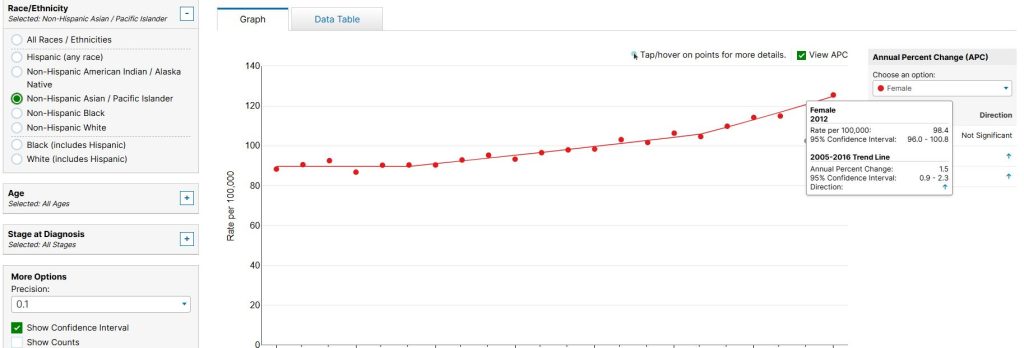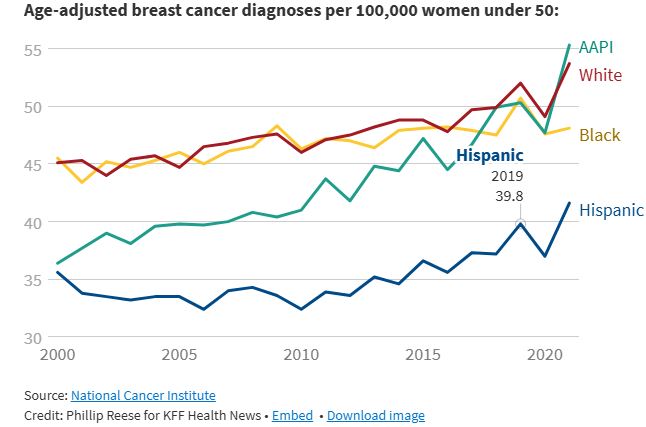Christina Kashiwada, a civil engineer in Sacramento, had noticed a small, itchy lump in her left breast while traveling for work in 2018.
The healthy 36 year old ruled it out to be harmless. Cancer was not on her radar. However, a recommended mammogram revealed that she had stage 3 breast cancer. Kashiwada is not alone in grappling with this shocking diagnosis.
According to a report from the California Healthline, about 11,000 Asian American and Pacific Islander (AAPI) women were diagnosed with breast cancer in 2021, with roughly 1,500 women dying. Such cases are typically of young women much like Christina Kashiwada.
She noticed a small itchy lump on her left breast, but the healthy 36 year old dismissed it as harmless. Cancer was not on her radar. However, a recommended mammogram revealed that she had stage 3 breast cancer.

The National Institutes of Health reports a trend of breast cancer diagnoses in AAPI women to increase at a relatively faster rate compared to women of other racial and ethnic groups. From 2000 up until 2021, the rate of breast cancer diagnoses among AAPI women under 50 years old increased by 52%. In contrast, the rate for diagnoses among women of all ages, races, and ethnic backgrounds grew by 3% during that same period.
The influx of breast cancer diagnoses amidst AAPI women has raised a question amongst researchers as to why this particular group is put at such an elevated risk.

Researchers such as Scarlett Gomez, a professor and epidemiologist at the University of California San Francisco’s Helen Diller Family Comprehensive Cancer Center, and Veronica Setiawan, a professor and epidemiologist at the Keck School of Medicine of the University of Southern California, investigate the multiple risk factors of what causes cancer in Asian Americans.
Setiawan, suggested cultural shifts and the adoption of a western lifestyle may factor into the recent spikes in an interview with California Healthline.
“Asian women, American women, they become more westernized so they have their puberty
younger now — having earlier age at [the first menstrual cycle] is associated with increased
risk,” said Setiawan to California Healthline. “Maybe giving birth later, we delay childbearing,
we don’t breastfeed — those are all associated with breast cancer risks.”
Despite ongoing research and theories, experts concur that there is not enough research to single out the cause of this trend yet. The data is not disaggregated, leaving many questions unanswered.
AsAmNews is published by the non-profit, Asian American Media Inc.
We’re now on BlueSky. You can now keep up with the latest AAPI news there and on Instagram, TikTok, Facebook, YouTube and X.
We are supported by generous donations from our readers and by such charitable foundations as the Robert Wood Johnson Foundation.
You can make your tax-deductible donations here via credit card, debit card, Apple Pay, Google Pay, PayPal and Venmo. Stock donations and donations via DAFs are also welcomed.


